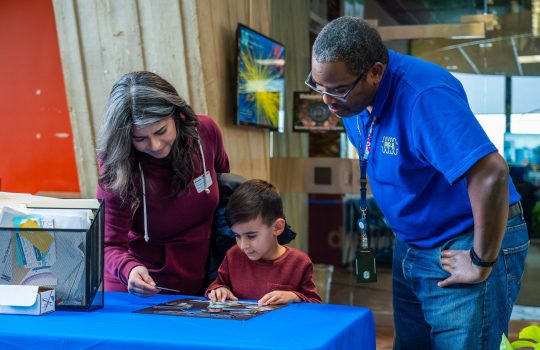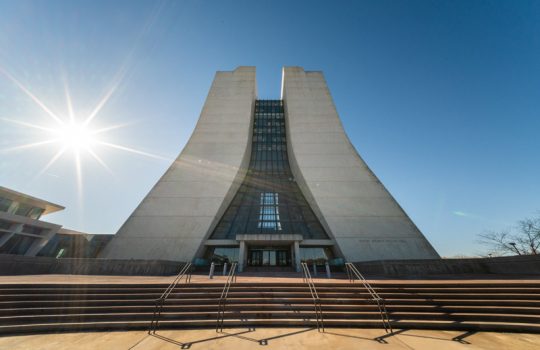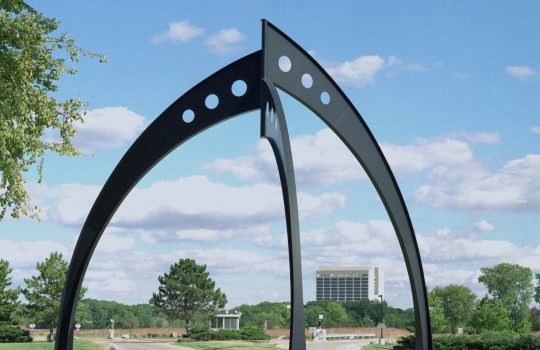Fermilab’s Community Advisory Board seeks local citizens interested in participating in the future of the laboratory to join its ranks.
The Community Advisory Board, established in the fall of 2009, meets six times a year. Members comment and offer feedback on proposed new projects, offer insight on potential community concerns related to new endeavors, provide guidance on Fermilab’s public participation, and act as a liaison with local organizations and communities.
The board consists of a rotating group of neighbors from all of the communities surrounding the laboratory. Board members represent many different walks of life and are affiliated with many different local organizations.
The Community Advisory Board grew out of two previous task forces established to provide direction for the laboratory’s public participation. The Community Advisory Board website provides information on the board and an archive of previous meetings.
With several large projects in the works, including the laboratory’s proposed flagship Long-Baseline Neutrino Facility and Deep Underground Neutrino Experiment, the Community Advisory Board’s input is more important than ever. Fermilab is looking for several new members to accept two-year terms on the board.
If you would like to be considered for the Community Advisory Board, please complete this questionnaire.
Community members are invited to nominate others for the CAB. Please send nominations with contact information to fermilab@fnal.gov. Members of the Office of Communication will follow up on all nominations.
Fermilab is America’s premier national laboratory for particle physics and accelerator research. A U.S. Department of Energy Office of Science laboratory, Fermilab is located near Chicago, Illinois, and operated under contract by the Fermi Research Alliance LLC. Visit Fermilab’s website at www.fnal.gov and follow us on Twitter @Fermilab.
The DOE Office of Science is the single largest supporter of basic research in the physical sciences in the United States and is working to address some of the most pressing challenges of our time. For more information, please visit science.energy.gov.



